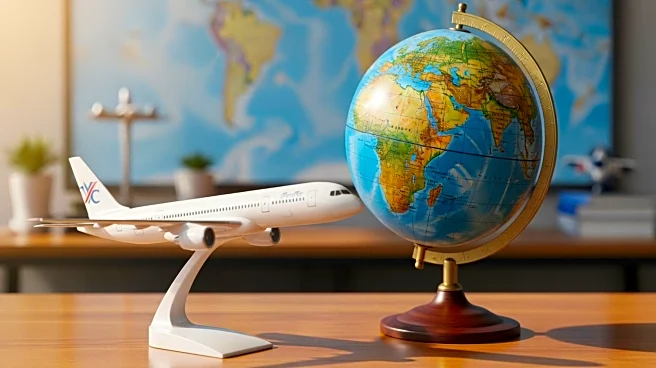What's Happening?
Icelandair CEO Bogi Nils Bogason has issued a warning about the impending air traffic control strike, which is expected to cause significant disruptions to travel and tourism. The strike, organized by
the Icelandic Air Traffic Controllers Association, is set to begin on Sunday night and continue into Monday morning, with further stoppages anticipated. The dispute centers around stalled contract negotiations over wages and pay development. The strike is primarily aimed at Icelandair but is expected to have broader implications for the country's economy and its reputation as a travel destination.
Why It's Important?
The strike poses a threat to Iceland's tourism industry, which relies heavily on air travel as the primary connection to the outside world. The economic impact could be substantial, with estimates suggesting a full day's halt in air traffic could cost the Icelandic economy around ISK 1.5 billion. Repeated strike actions risk damaging Iceland's image as a reliable travel destination and could undermine confidence in its air navigation services. The situation highlights the critical role of air traffic control in maintaining the flow of international travel and the potential consequences of labor disputes in this sector.
What's Next?
As the strike unfolds, stakeholders in the travel and tourism industry will be closely monitoring its impact. The Icelandic government and employers may face pressure to resolve the wage dispute to prevent further disruptions. Airlines and tourism operators will need to adapt to potential changes in flight schedules and customer demand. The strike could also prompt discussions about improving labor relations and contract negotiations in the air traffic control sector, potentially influencing future policies and practices.









